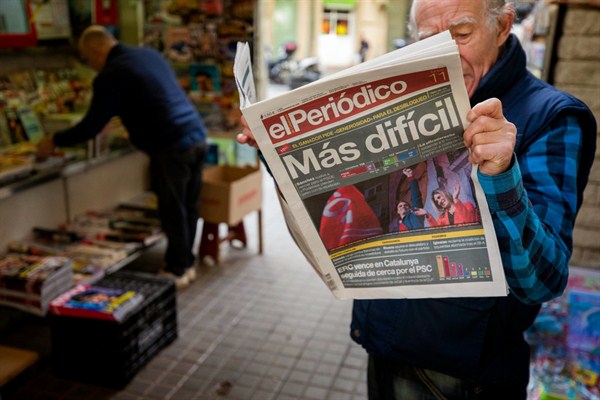MADRID—Spain returned to the polls Sunday for the fourth time in four years, and just six months since its last election. After giving the center-left Socialist Party, the leftist Podemos party and center-right party Ciudadanos, or Citizens, the opportunity to form a government in April, voters punished them this time around for failing to do so. The Socialists lost three seats in parliament, again falling short of a majority despite winning the most seats. Podemos lost seven seats and Ciudadanos a jaw-dropping 47, the biggest setback yet for the centrist upstarts. While voter turnout was about 5 percent less than in April, those that did vote gave the biggest boosts to the traditionally conservative Popular Party, which gained 22 more parliamentary seats, and the far-right Vox party, which more than doubled its seats from 24 to 52, making it the third-largest party in parliament.
Voters may have given the Socialist Party the most votes and therefore a second chance at governing, but this hollow victory came with an even more fractured and polarized party system and a much more complicated path to forming a government. No one can say that there won’t be another election in six months.
Three possible scenarios are currently getting the most attention in Madrid. The first and most favored by the Socialists would be the Popular Party abstaining from the second vote in parliament on forming a government, which would allow the Socialists to govern from the minority. A second possibility would be a grand coalition of the Popular Party and the Socialists. Both of these options are tough to envision, though, given that these two parties, which once dominated Spain’s formerly two-party landscape, have rivaled each other for decades. And as Pablo Casado, the Popular Party’s leader, noted Sunday night, they don’t have much common ground in terms of policy. In fact, Casado went so far as to suggest that Sanchez should step down.

